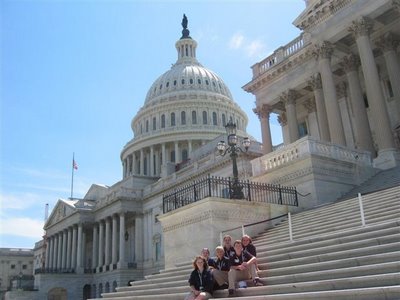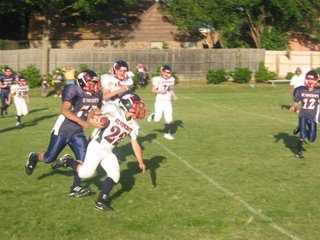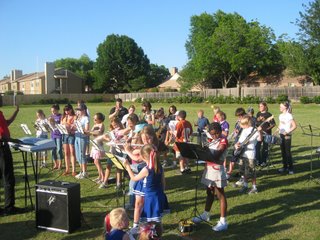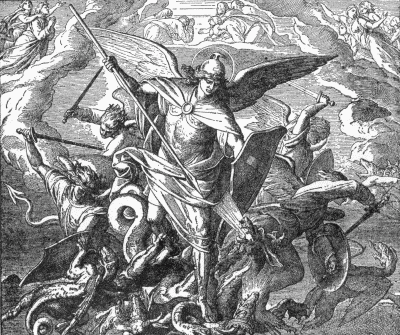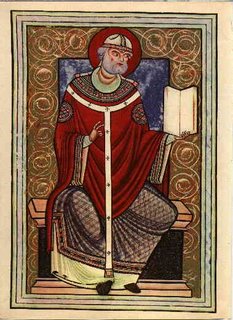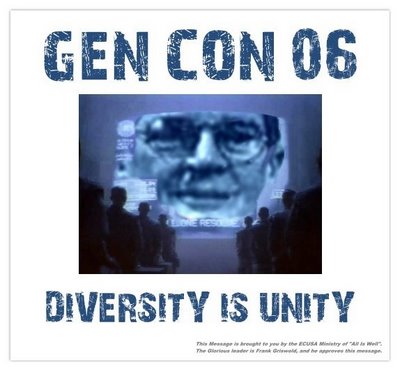A Sermon for Sunday, May 28th
They stood there on the Mount of Olives that Thursday gaping at the sky. Christ was gone, taken up into the clouds before their very eyes. Their risen Lord and Teacher had appeared to them frequently over the forty days since Easter Sunday, “speaking about the kingdom of God.” Christ had reassured them with His presence for more than a month after His triumph over death and the grave—a living, breathing confirmation of the promise of eternal life to all who believe in His name. And significantly, as St. Luke tells us in his Gospel and the Book of Acts, Christ had “opened their minds to understand the Scriptures” and “had given commands through the Holy Spirit to the apostles whom He had chosen.” But now that was over. The Lord had returned to Heaven, whence He had come. And they were alone again on the hilltop, staring into the sky in wonder … and, no doubt, with a bit of apprehension.
What exactly were they supposed to do now? Before His Ascension the Lord had instructed His disciples to “stay in the city until [they were] clothed with power from on high,” which had something to do with what Christ called being “baptized with the Holy Spirit not many days from now.” This new power from the Spirit was clearly somewhat more comprehensive than the ability to forgive sins that the risen Jesus had conferred upon the apostles when He breathed upon them on Easter Sunday. This new “power from on high” would enable the disciples to be Christ’s “witnesses in Jerusalem, and in all Judea and Samaria, and to the ends of the earth.” That was quite an ambitious project for a community of believers that numbered only 120 souls at the time of the Ascension. No wonder they stood there hoping Jesus was coming right back! “Lord, please come back down. We have a few more questions!”
But their wonder and confusion was brought to a sudden end. Two angelic figures appeared to them, chastising their hesitation. “Men of Galilee, why do you stand looking into heaven? This Jesus, who was taken up from you into heaven, will come in the same way as you saw him go into heaven.” The implied message of the angels? “Quit stalling! The Lord will come back when the time is right. In the meantime there is work to be done. Get on with it!”
So they returned to Jerusalem to await the promised “power from on high,” whenever God might choose to send it. The Eleven surviving apostles, the Blessed Virgin Mary, the women who had followed the Lord, and His relatives gathered together again in the upper room. And as St. Luke puts it, “All these with one accord were devoting themselves to prayer.”
But the disciples didn’t just pray. They acted. Saint Peter stood up and, citing the Psalms of David as authority, made a bold proposal: they needed to appoint another apostle to take the place of the traitor, Judas Iscariot. “One of the men who have accompanied us during all the time the Lord Jesus went in and out among us,” Peter said, “beginning from the baptism of John until the day when he was taken up from us—one of these men must become with us a witness to his resurrection.” The witness of the community of believers to the salvation wrought by Jesus Christ, Peter knew, could not be allowed to falter. And as chief witnesses and guardians of the testimony, it was especially important that the apostolic college remain intact. But please note, the new apostle must be able to testify to the whole body of Sacred Tradition, not only what Jesus said and did during His earthly ministry, not only His cross and empty tomb, but also what Christ did and taught after His resurrection. The saving work of God in Christ Jesus is made of whole cloth, and an apostle had to be able to pass that entire sacred tapestry along to others intact. After prayerful consideration, the lot fell on Matthias, “and he was numbered with the eleven apostles.”
But there was more to the appointment of Matthias as an apostle than simply insuring there were enough authoritative witnesses to spread the message about Christ’s ministry, death and resurrection. There was a deeper, mystical meaning in the selection of the new apostle. St. Peter and the others knew that the restored Israel, redeemed with Christ’s own sacred blood, must not be deprived of wholeness through the treachery of Judas. The Lord Jesus had desired unity for His people. In His high priestly prayer after supper on the night He was betrayed, Christ had prayed for this unity in the strongest possible terms: “Holy Father, keep them in thy name, which thou hast given me, that they may be one, even as we are one.” The bond of unity that Christ desires among His people is meant to be as sure as the limitless communion between God the Father and God the Son. Christ wills for His Body the Church—which soon will draw members from “every tribe and people and language and nation” on earth--to mirror the unity of the Holy Trinity itself!
But as serious students of the Old Testament, St. Peter and the other apostles knew that when the unity of the twelve tribes of Israel under King David and his son, Solomon, had collapsed more than nine hundred years earlier, then apostasy, immorality, and—ultimately--destruction followed closely behind. This could not to be the fate of the renewed Israel of the Messiah Jesus. The number of her patriarchs must be complete at twelve, and these leaders must be united in their witness, “devoting themselves to prayer”…“with one accord.” The wound inflicted by the kiss of Judas could not be allowed to maim the Israel of God forever, not if all were to be one as Christ and the Father are one. Hence, the apostolic college was restored to wholeness by the appointment of Matthias and the people of God were prepared to take the Gospel of salvation into the entire world “when the power from on high” came upon them a week later at Pentecost.
This mission to take the Good News of Jesus Christ out into the world is, of course, our highest duty as Christians. Shortly before His Ascension, our Lord commanded us to “Go and make disciples of all nations, baptizing them in the name of the Father and of the Son and of the Holy Spirit, teaching them to observe all that I have commanded you.” This Great Commission is an unshakable obligation for every Christian, even if it makes us staid Anglicans a bit uncomfortable at times.
But we have a second sacred obligation as well: to work for the restoration of the unity on earth of Christ’s Body, the Church. It is deeply saddening that you and I remain separated today from millions of Protestants who believe every word of the Nicene Creed and revere the Holy Scriptures as God’s written revelation. And it is nothing less than a tragedy that Catholic Anglicans, such as the good people of St. Vincent’s Cathedral, are not in full communion with our Eastern Orthodox and Roman Catholic brothers and sisters, with whom we share 98% of the deposit of Faith. As the apostles knew in those first days after the Ascension, whenever the unity of God’s people is compromised there is danger to the entire Body. We are most sound and best able to serve our Lord when we are “of one accord” in testimony and practice. And lest we forget, Christ desired the unity of His people so much that He made it a centerpiece of His final prayer before being handed over to suffering and death on the cross on our behalf. How can you and I not do everything in our power to see that His will be done?
Please note: I am not talking about a “lowest common denominator” approach. The sad fact is there is virtually nothing that all people who call themselves “Christian” can agree upon, not even the divinity of Christ. We must not trade away a single treasure in the deposit of Faith that the ancient Church handed down to us in order to reach agreement with those who hold unsound teachings. Any resulting “unity” would be fatally compromised from the start. Rather, I am talking about restoring the visible unity of all those who sincerely share “the Faith once delivered to the saints,” what C.S. Lewis called “mere Christianity”: those who believe our risen Savior Jesus Christ is truly human and truly divine, who reverence the Bible as the written revelation of God’s holy Word, who affirm the historic Creeds of the ancient Church without reservation, and who respect the Spirit-filled wisdom of the hundred generations of Christians who have come before us. There are about a billion and a half such Christians in the world today. What a witness it would be if we all truly were one as Christ and the Father are one! The gates of Hell could not prevail against that!
It is especially fitting that you and I, as Americans, reflect upon this sacred obligation to work for Christian unity on Memorial Day Weekend, when our nation honors those who, with courage and determination, have given “the last, full measure of devotion” for the unity and integrity of the American Republic. You and I need a similar devotion to the great work ahead of us. May God, through His grace, give us courage and determination to work without ceasing for the restored unity and integrity of Christ’s Church on earth, and may He hasten the day when all Christians devote themselves to prayer “with one accord,” as those first saints did long ago in the upper room. In the name of the Father, and of the Son, and of the Holy Spirit. Amen.




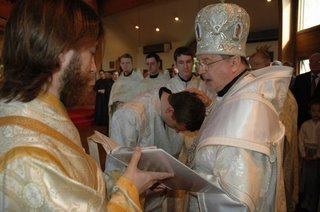
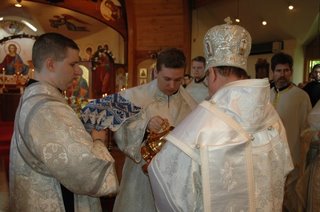
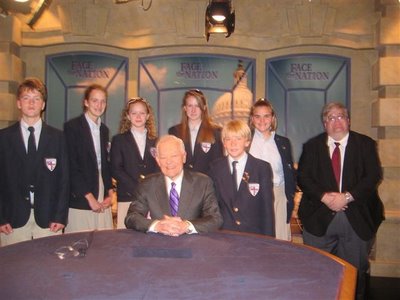 Here are the students and I with Mr. Schieffer and Senator Diane Feinstein of California, the in-studio guest on last Sunday's "Face the Nation", in the Green Room before the broadcast.
Here are the students and I with Mr. Schieffer and Senator Diane Feinstein of California, the in-studio guest on last Sunday's "Face the Nation", in the Green Room before the broadcast. 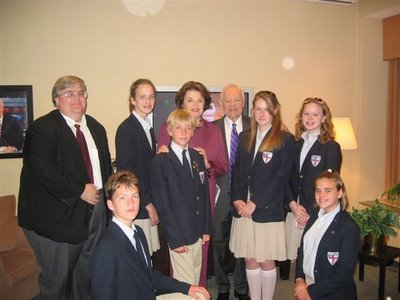 Finally, here are our kids on the steps of the Capitol. (There were police sharpshooters protecting the Senate while it was in session just to the right of this picture's frame, but they preferred not to be photographed!)
Finally, here are our kids on the steps of the Capitol. (There were police sharpshooters protecting the Senate while it was in session just to the right of this picture's frame, but they preferred not to be photographed!)